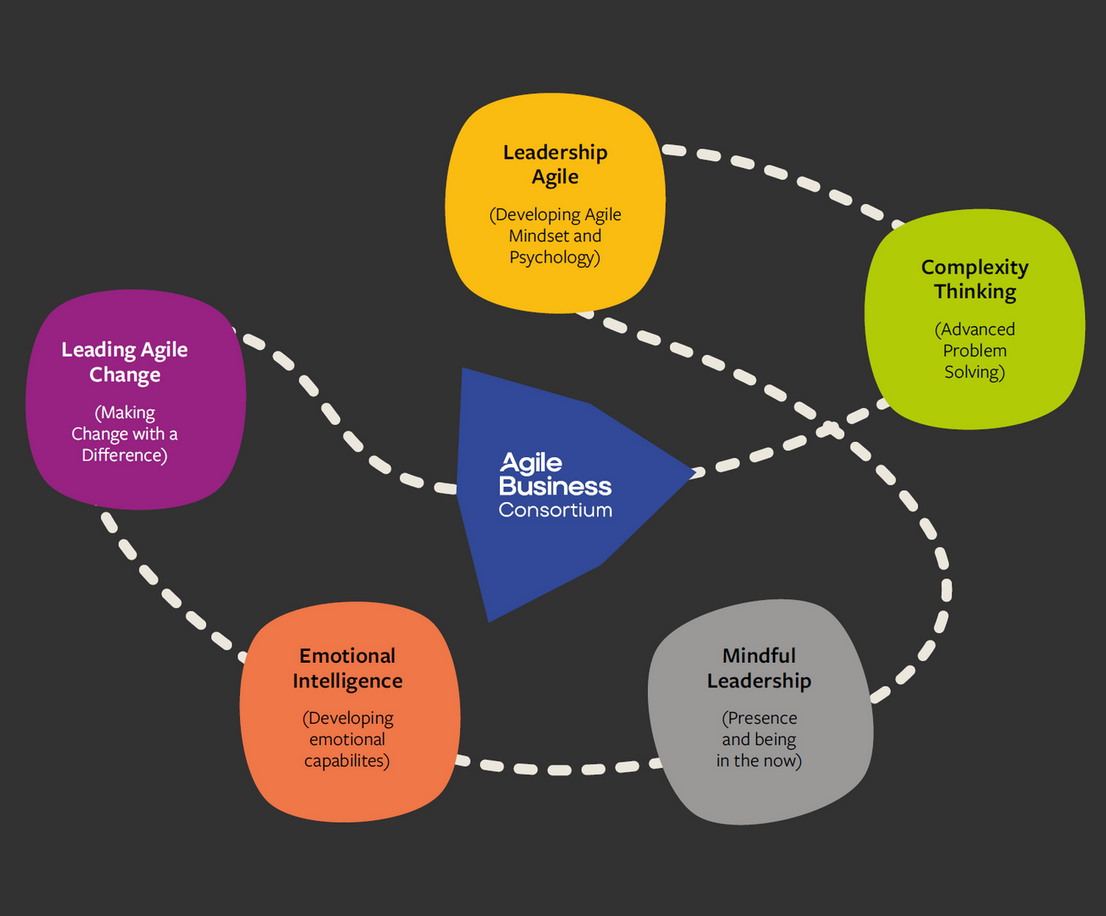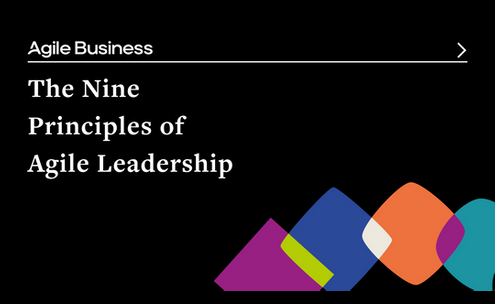Principle 1: Actions speak louder than words
Authenticity; leader as learner; being the change; living the agile values
Agile leadership is not only about driving and promoting change; it is also about being the change. People are inspired by those who lead by example and actively engage in their own development. This is through action rather than words; as Gandhi said “Be the change you want to see”.
Agile leaders develop themselves to be humble and empathetic by demonstrating virtues such as compassion, kindness and care for their colleagues. Inspiring leaders to work on themselves first before working on others.
Being the change
It is no coincidence that this is the first of our agile leadership principles. Wise leaders “pay careful attention to group processes. Such leaders know how to calm anxieties and when to arouse hopes and aspirations. They know how to transform personal needs into societal demands; they know how to liberate human energy and inspire people to positive action.” 1
For many leaders some of these behaviours or ”knowings” do not come naturally. To that end, the agile leader is one who engages in their own personal development to further grow these skills. Personal development will of course mean different things to different people, but one thing is common to all these leaders: people cannot be expected to “do or be more” unless the leaders set an example and actively engage to embody the change that they expect to see in their colleagues. Otherwise, colleagues will lose faith and trust in leaders who do not lead by example.
Many senior leaders have great intentions when they initiate transformation programmes, but the focus is often perceived to be somewhere below them in the hierarchy. Coaches and consultants are brought in to help bring about new behaviour changes in others, but rarely does change focus on the senior leadership. It is almost as if leaders are giving the message that the problems reside elsewhere.
This passing of responsibility causes challenges for the change initiative. Individuals who are being asked to change (again) become more and more impatient with their leaders as they seem to take a narrow, non-systems approach to the problems they are facing i.e. leadership behaviour is part of the systemic and complex problems we are facing.
Unless leadership is fully engaged in their own change efforts, there will be no effective sustainable transformation. This gives a whole new meaning to leading change:
Agile leaders lead change by engaging in the courageous behaviour of developing themselves
Agile leadership isn’t a destination... it’s a journey
As the diagram shows, there are many destinations that leaders can travel to when engaging in their own personal change journey. These are just some suggestions of the types of learning that leaders can engage in. The one common theme amongst these suggestions is that they are all people related. It is strongly recommended that during times of transformation the leader has access to coaches who can help them to work on their own behaviours and mindset; this way, their development can be tailored to the individual’s own specific needs rather than being based on generic leadership guidance. One of the key advantages of engaging in a coaching programme for the organisation’s leadership, is that the leaders themselves will be held accountable for their own improvement and learning. Wise leaders will also then employ Principle 3 (effective feedback), taking on feedback to help their development. This is something that many leaders find very difficult if they believe that they need to be seen to be perfect and thus be above receiving feedback from anywhere lower in the hierarchy.

Figure 1: “Plot your own Agile Leadership Success”
Part of this personal journey should also include developing the team dynamic. Agile leaders will expect their people to work more effectively by collaborating within their teams; this is where agile practices really pay dividends. The notion of a high-performing team is considered to be one where the whole exceeds the sum of the parts. An element missing from the original agile manifesto is “relationships”. The complexity lies in the relationships, so engaging the leadership team in building better relationships starts in their own team and ripples through the organisation.
This is a call for humble leaders, those who can inspire people with their own presence and behaviours
Are true leaders born and can they be grown?
The “nature versus nurture” debate has persisted in academia and leadership practice for decades. While it cannot be disputed that some people have more innate talent as leaders than others, many great leaders have had to work at being better leaders.
Any practitioner of agile change will demonstrate the Incremental Mindset. The Incremental Mindset is prepared to make mistakes and learns to improve over time; learning is an exciting challenge and adventure bringing its own joy and fulfillment. This is in opposition to what is referred to as an Entity Mindset, which believes people are born with only a certain amount of intelligence and it doesn’t change. People with an Incremental Mindset approach change differently and are usually much better at adapting to change. Their development as leaders is important to them, and as such, they invest time and energy in developing their leadership agility.
True agile leaders can be grown and developed.
Be the change you want to see - Gandhi
Sources
- Kets de Vries, M.F.R., 2013. The Eight Archetypes of Leadership - Harvard Business Review
Author

Agile Business Consortium
The Agile Business Consortium is the professional body for business agility. We’re all about community – whether you’re a multinational working through a large-scale transformation, a new start-up, or a contractor, we can support you to achieve more, to grow more, and to build your business agility. As a global not-for-profit organisation that’s been around for over 25 years, our knowledge and experience around agile competencies and behaviours can offer you the guidance you need to reach your agility goals. Together with our partners, we create and share agile research, case studies, resources and tools that help you compete in today’s uncertain world. A registered not-for-profit, we’re the world’s longest-standing agile-orientated organisation. We’re the brains behind AgilePM®, AgileBA®, AgilePgM®, AgilePfM™ and AgileDS™. Based in the UK, we have members in over 30 countries around the world.
Email: [email protected]
- Twitter:
- @Agile_Biz
- Website:
- www.agilebusiness.org
- LinkedIn:
- https://linkedin.com/company/agile-business-consortium


